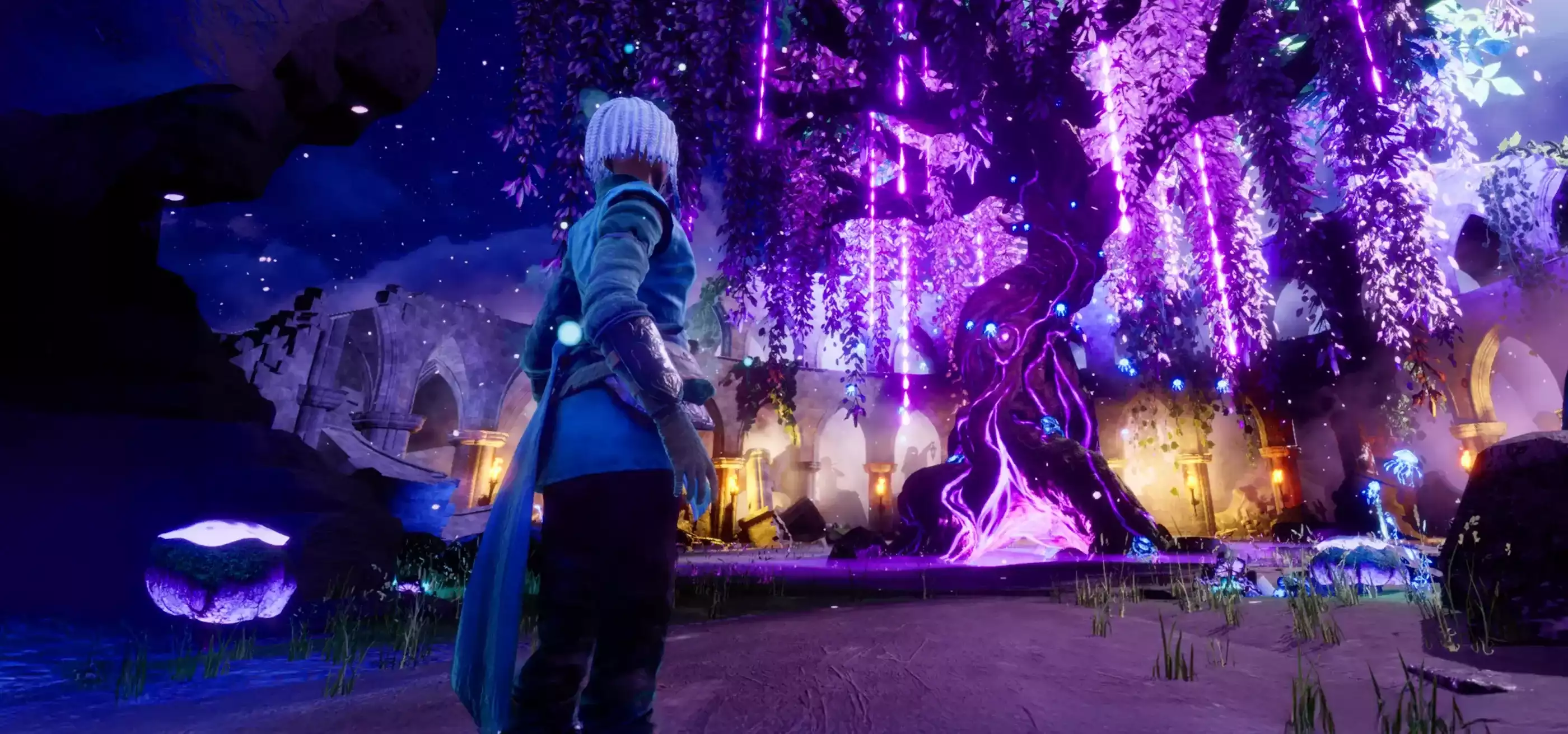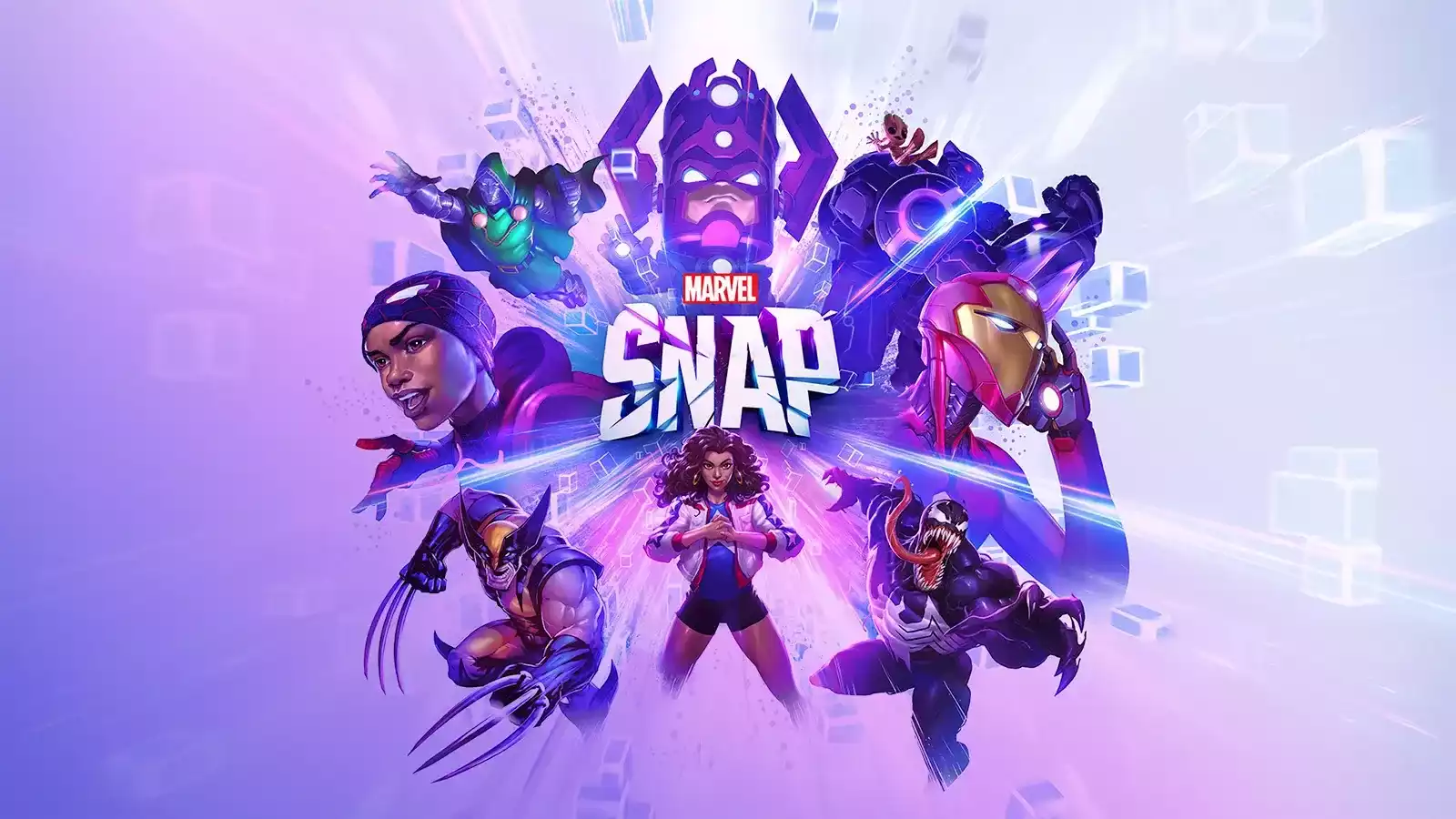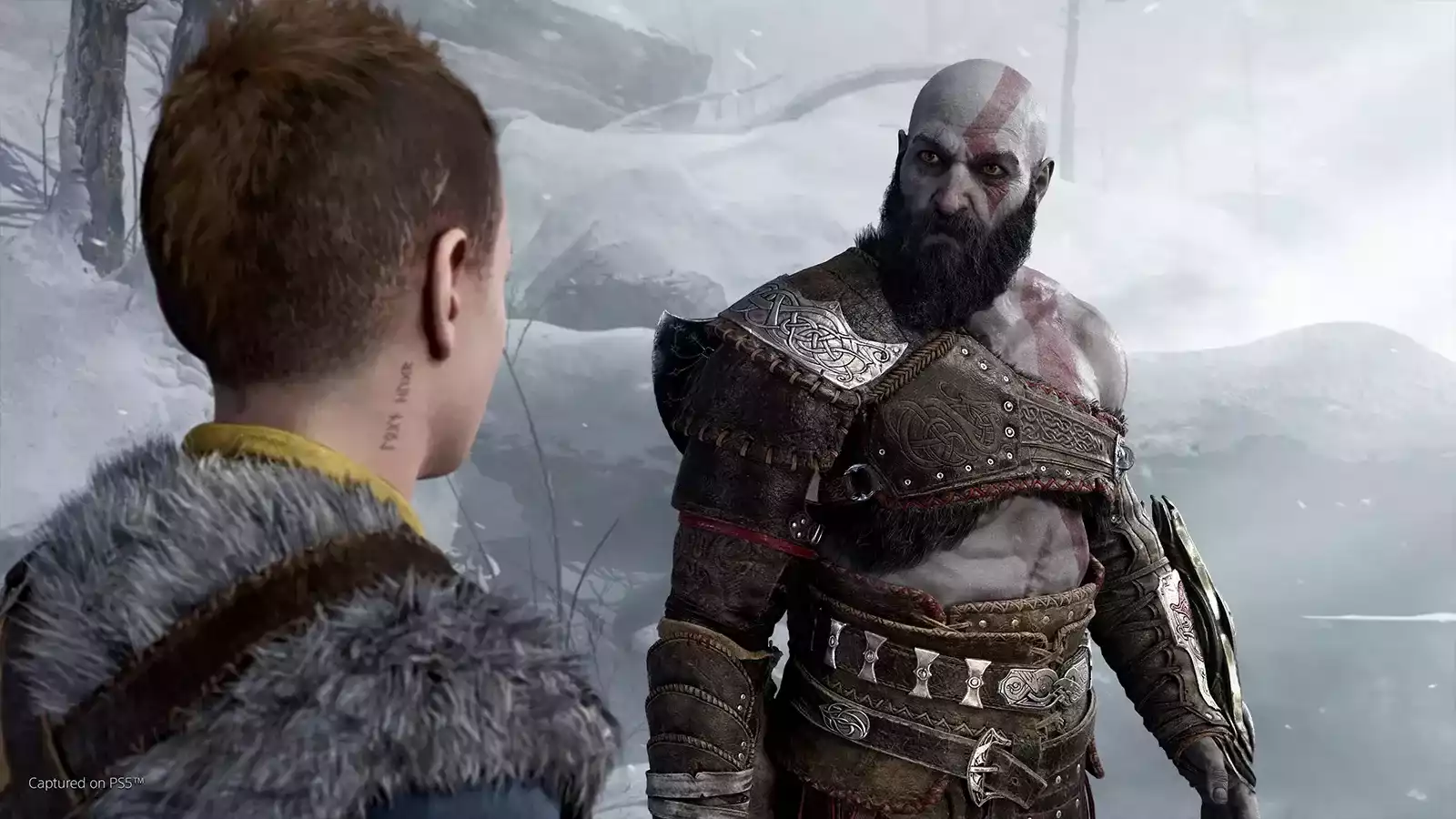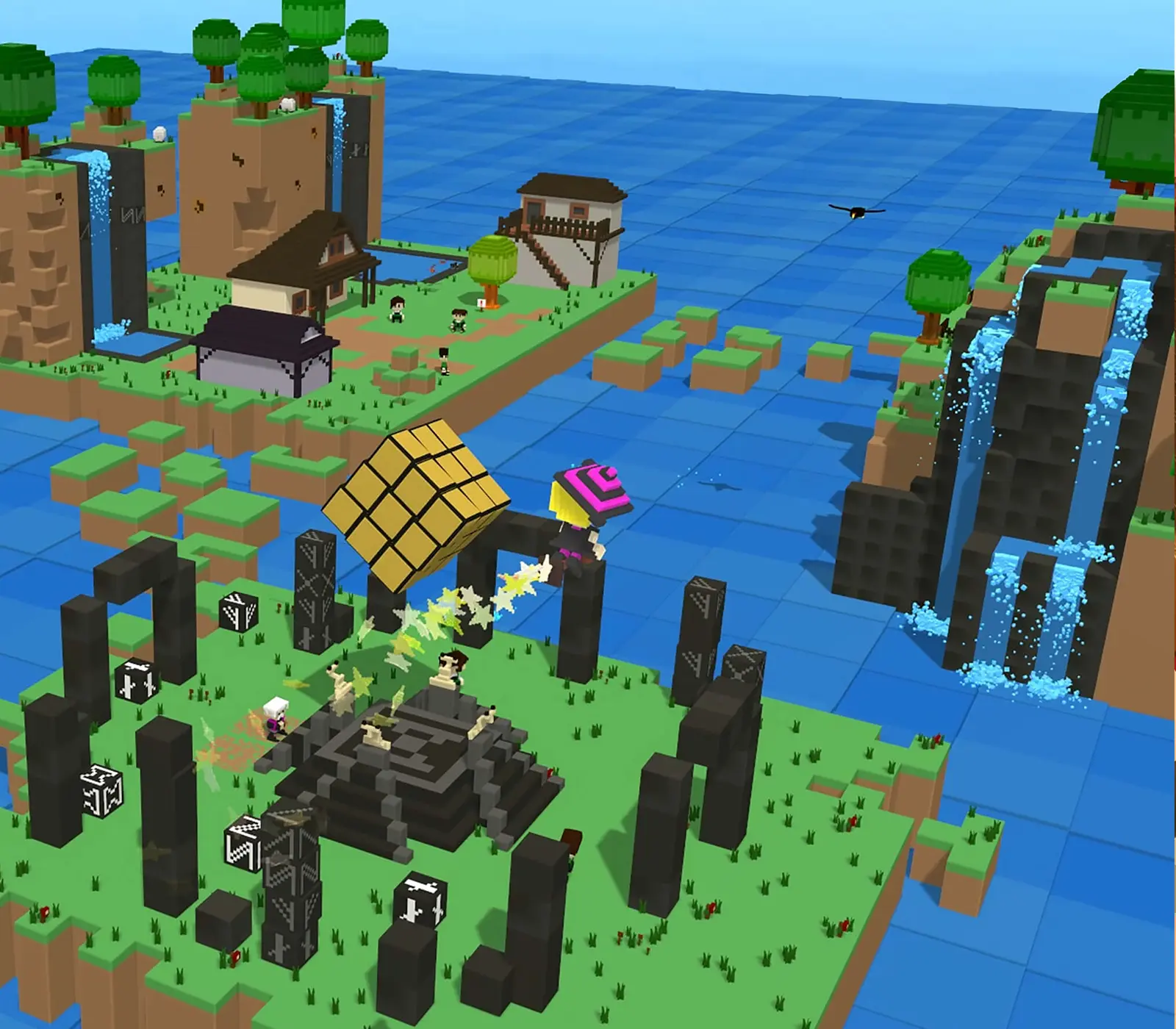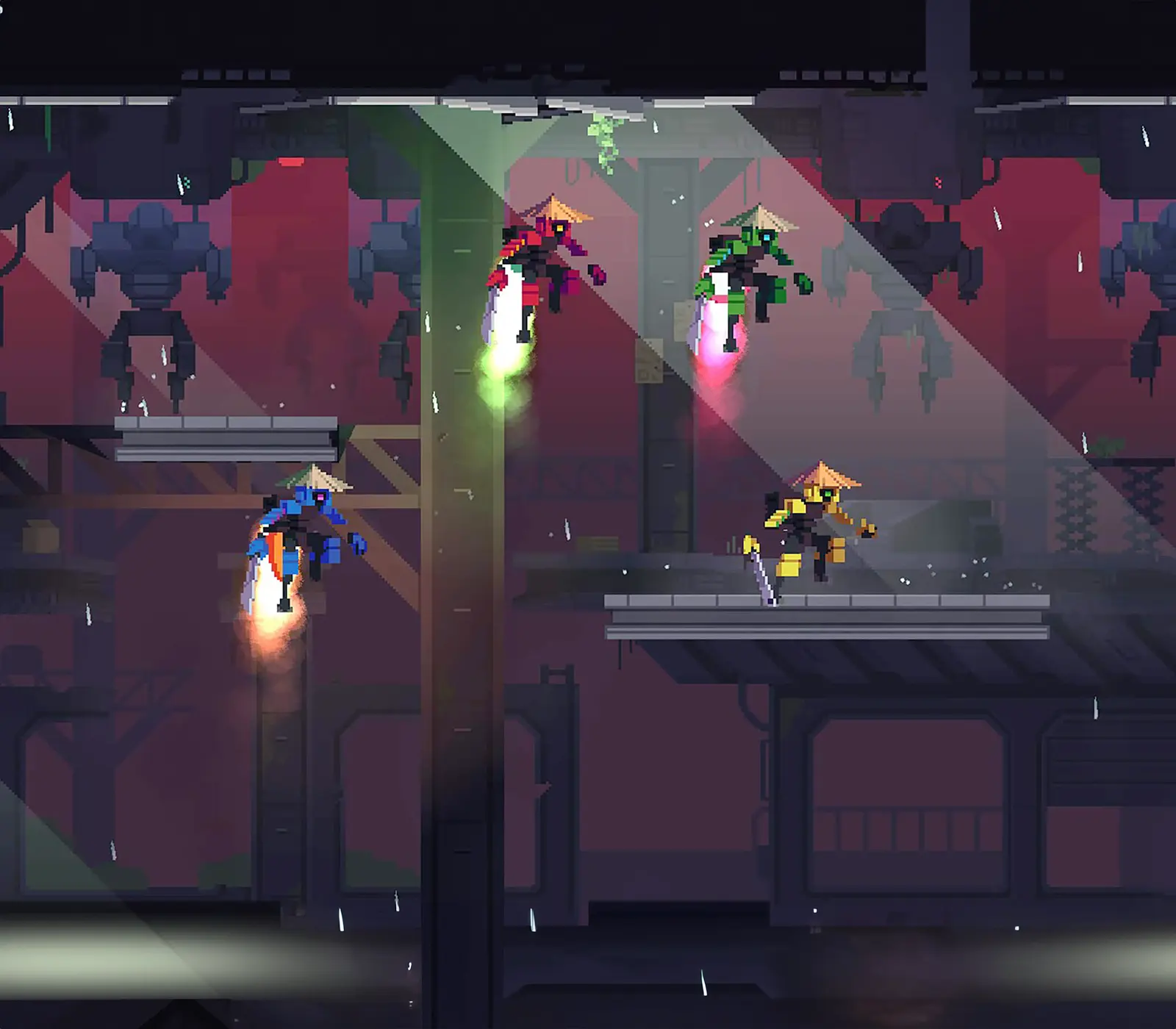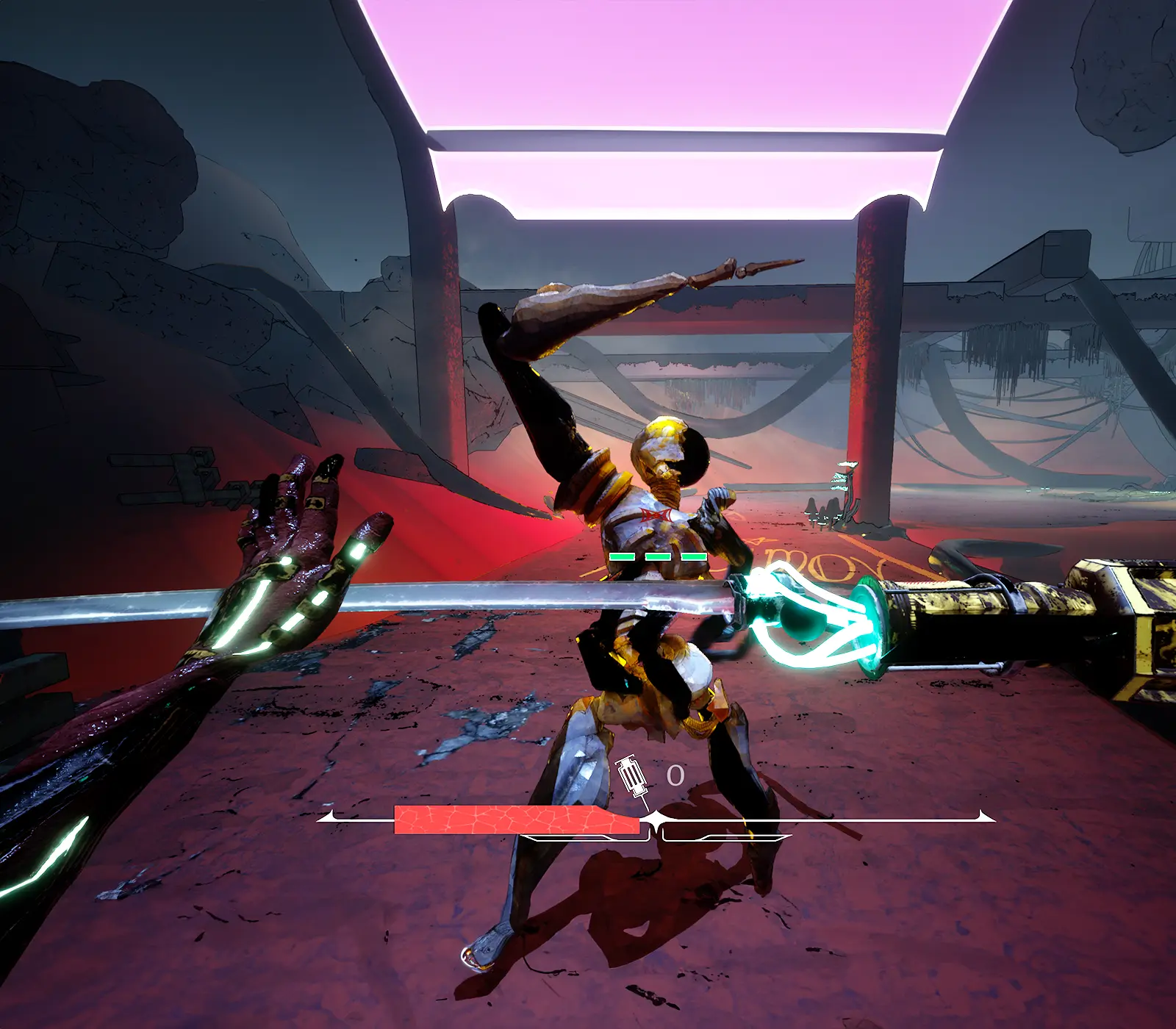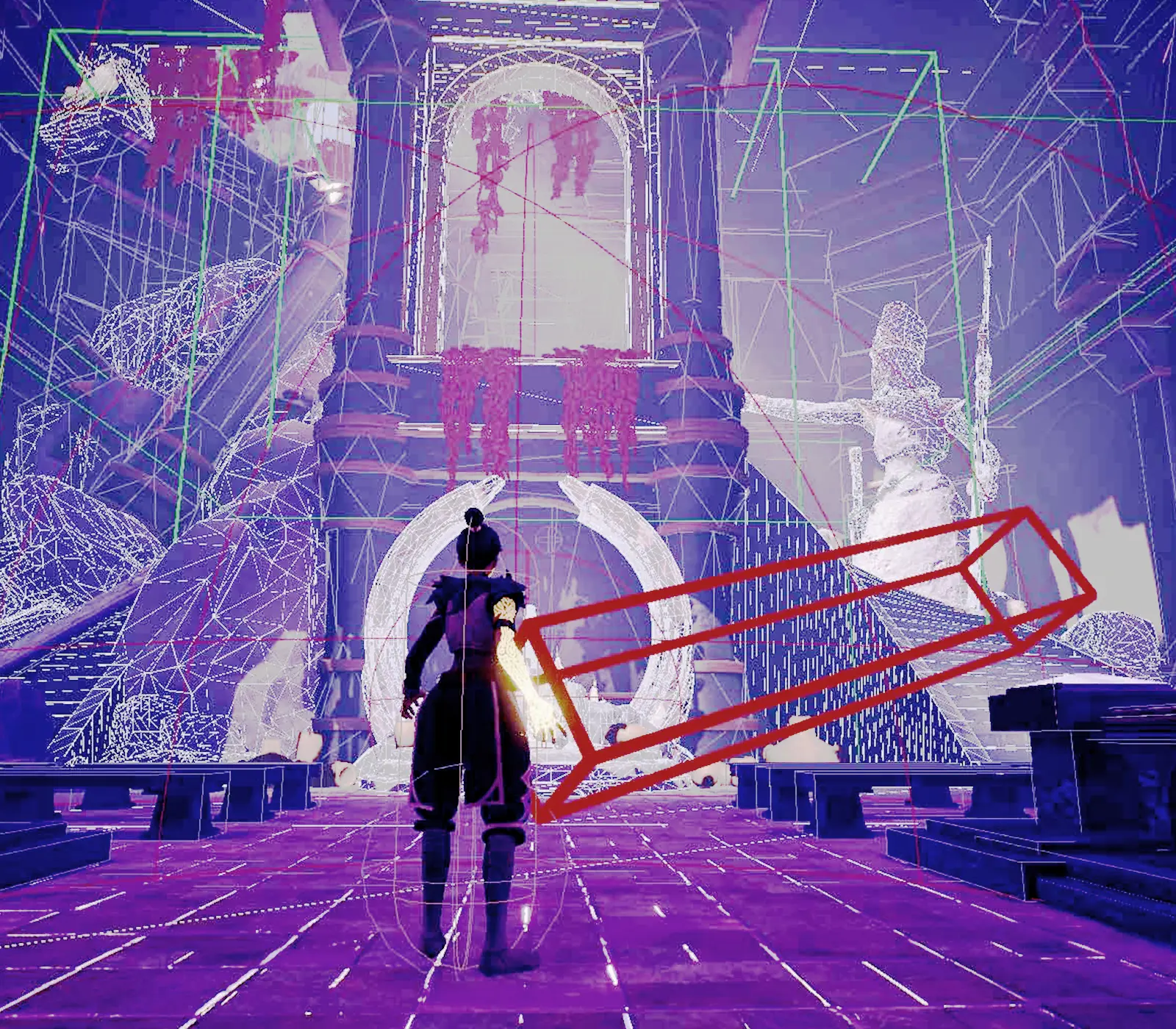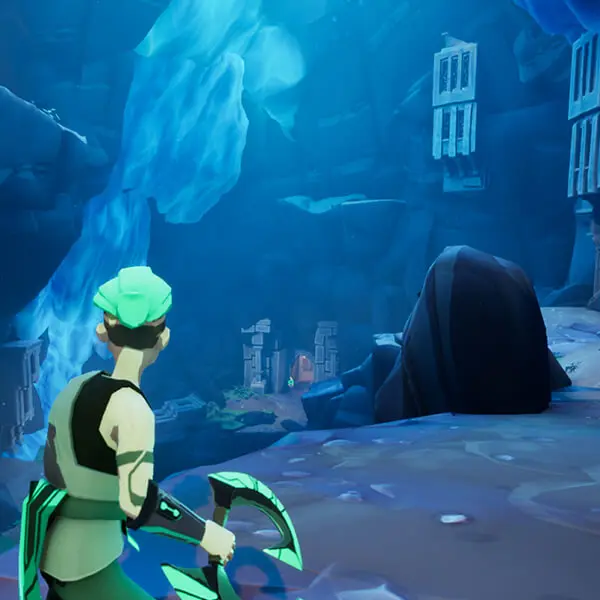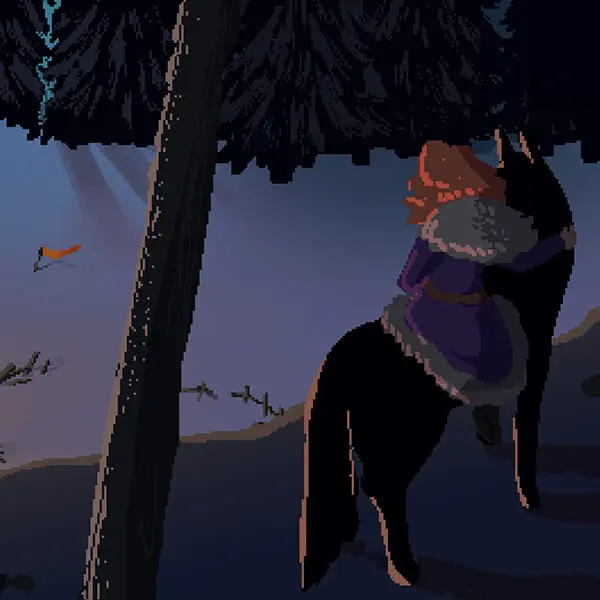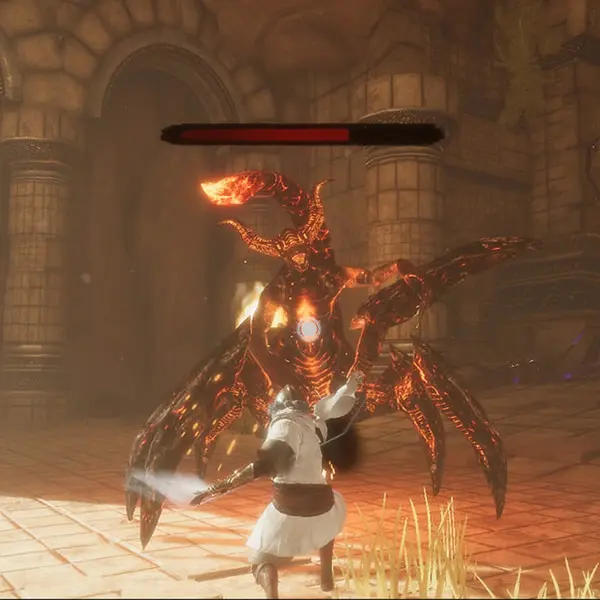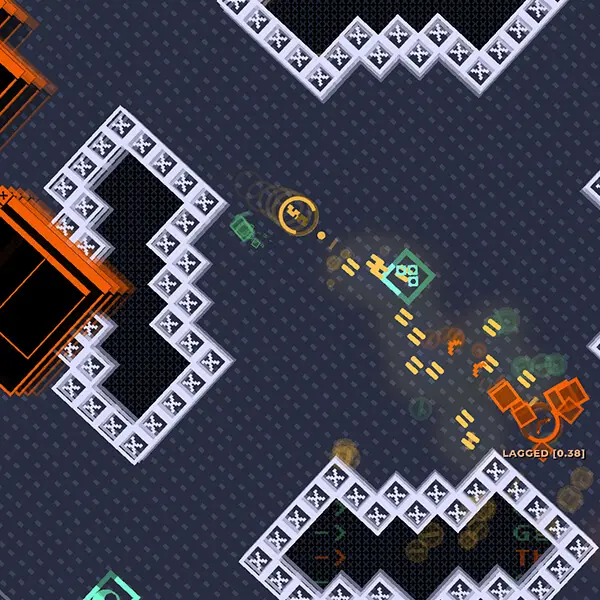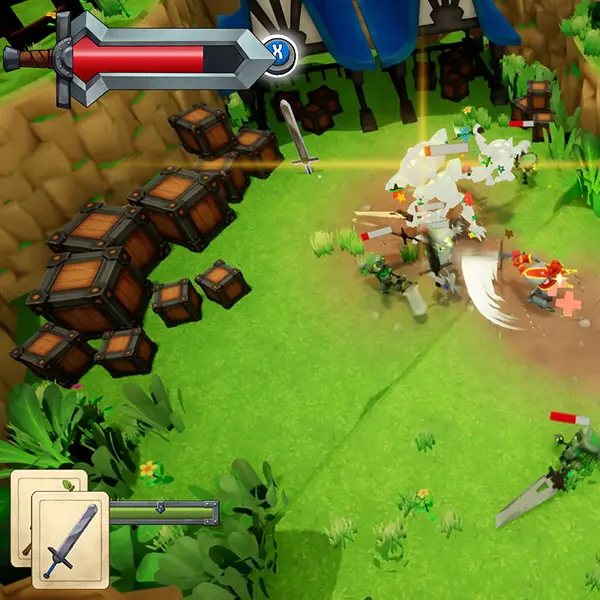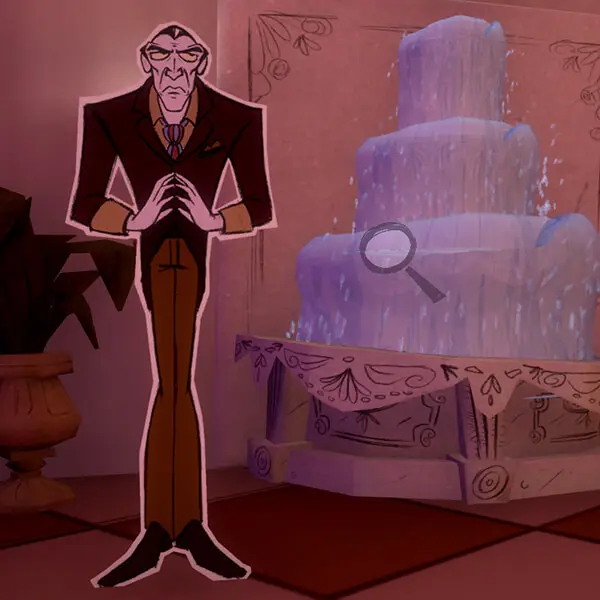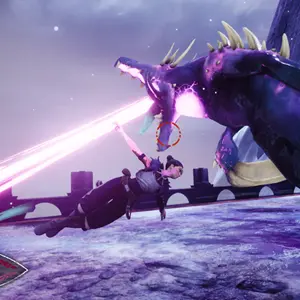Game designers tap into the mind of the player to craft the engaging, memorable experiences at the core of games. What mechanics and systems is the game built on? How does it feel to control the player character? How can you direct players through levels as intended? If players don’t do what you intend, what happens next? Game design means making intentional, informed choices that answer the “why?” of what makes games fun.
Learning the tools, techniques, and testing that goes into answering that “why?” is what our BA in Game Design degree is all about. When you drop into our four-year game design program, you’ll dig into the craft and concepts that have shaped both modern video games and centuries-old analog classics. You’ll quickly put your expanding design skillset into practice through yearly game projects, where you’ll pair up with programmers, artists, and audio specialists on multidisciplinary teams. By your junior year, you’ll sharpen your focus by selecting your choice of systems, narrative, level, technical, user experience (UX), or user research design concentrations. If you’ve ever wondered how to get into game design, our program will help you master the basics before homing in on the specific areas you’re most passionate about in the industry.
As designers, we’re making games for others, not ourselves. When students form teams to create their games, they confront the importance of designing for the player, and it’s something they carry with them into their careers.”

Jeremy Holcomb
Program Director
A Byte-Sized Program Breakdown
Tap Into the Psychology of Design
Understand the mind of the player — what motivates them, how to shape their experience, and how to solve common cognitive problems through design.
Collaborate Across Disciplines
Built around yearly game projects where your ideas can flourish through your design role on a team of students from different degrees.
Learn From Seasoned Pros
Engage with experienced faculty from across the game industry and build connections with local companies like Microsoft, Nintendo, and more.
Shape Your Specializations
Like a video game skill tree, tailor your coursework with two game design concentrations your junior year, including level, narrative, systems, technical, UX, and user research design.
Invest in Your Future Career
Guides you into relevant industries where regional producers in Washington make an annual mean wage of $97,820.*
*Annual mean wage in Washington state as of May 2024. Source: www.bls.gov
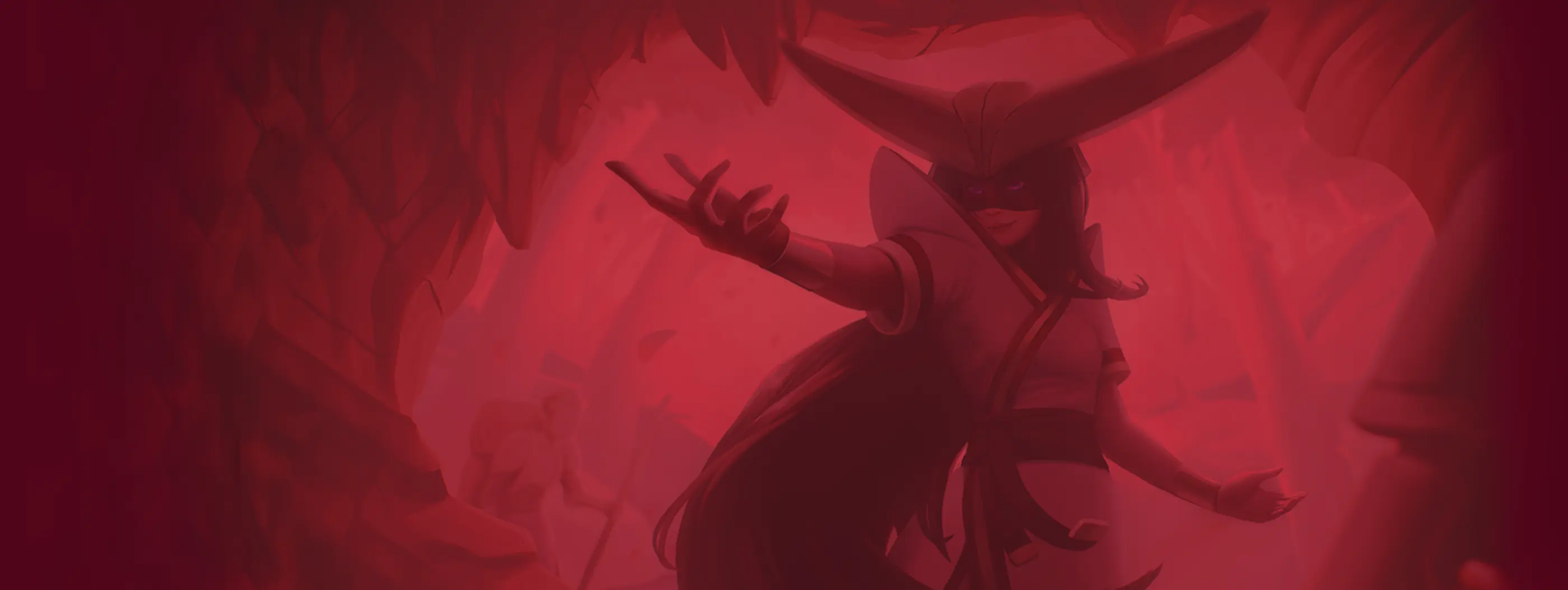
Alumni Highlights
Turn your passion into your career.
No matter how you slice it, DigiPen graduates go far. Through our comprehensive courses and project-focused methodology, our graduates enter the industry ready to start programming games alongside a top-notch network of developers and creatives.
Current students connect with top industry professionals through exclusive events hosted by DigiPen’s Career and Alumni Relations department.
- Networking Mixers
- Industry Company Days
- Reverse Career Fairs
- Internship Support
- Course Audits for Alumni
A sample of entry-level game designer jobs and professions our graduates have landed that help summarize a video game designer career.
- Quest Designer
- Systems Designer
- Level Designer
- User Research Associate
- Narrative Designer
Our graduates shape the next generation of games and interactive media at major influential companies, close-knit indie studios, and their own passionate ventures.
- Nintendo
- Bungie
- Ubisoft
- Sucker Punch Productions
- Treyarch
- Pokémon Company International
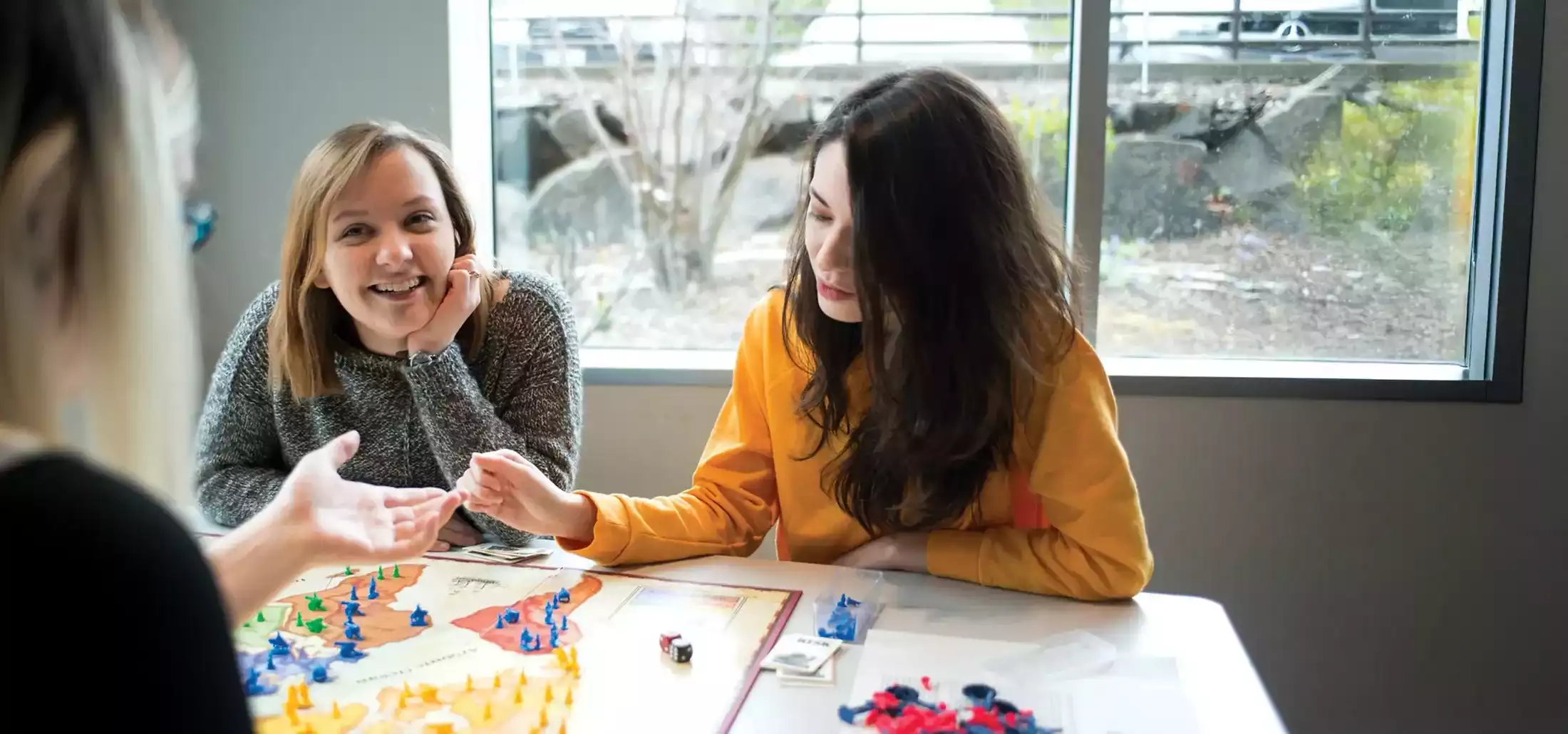

The collaborative environment that we had on our game teams at DigiPen is something that is very easy to translate into the real world. Knowing how to communicate across disciplines — from art, design, and engineering — is incredibly valuable.

Devin Brom
Degree Program Alum
In their other classes, the students are learning game design techniques, programming techniques. And the game class is where they bring it all together. And to me it’s so incredibly important, because they’re putting everything into practice. But they’re also learning how to work as a team.

Ellen Beeman
Associate Professor
I’ve never been very motivated when it comes to school, so having the motivation of being able to work with games, with something that I had a passion for and something that I wanted to improve at as much as possible, was the drive I needed.

George Boden
Degree Program Alum
Coming to DigiPen was the best feeling ever. It was so clearly, exactly what I wanted and so much fun. A school for video games where I can just sit and learn about game design, and even my electives are fueling my game design education.

PJ Rivas
Degree Program Alum
Student Teams
Skills aren’t formed through books and lectures alone.
It’s a yearly endeavor — students form teams and collaborate to create an original video game from start to finish. Every member of the team brings a unique perspective to the game project, and your newfound expertise from your degree program can secure you a relevant role within your team.
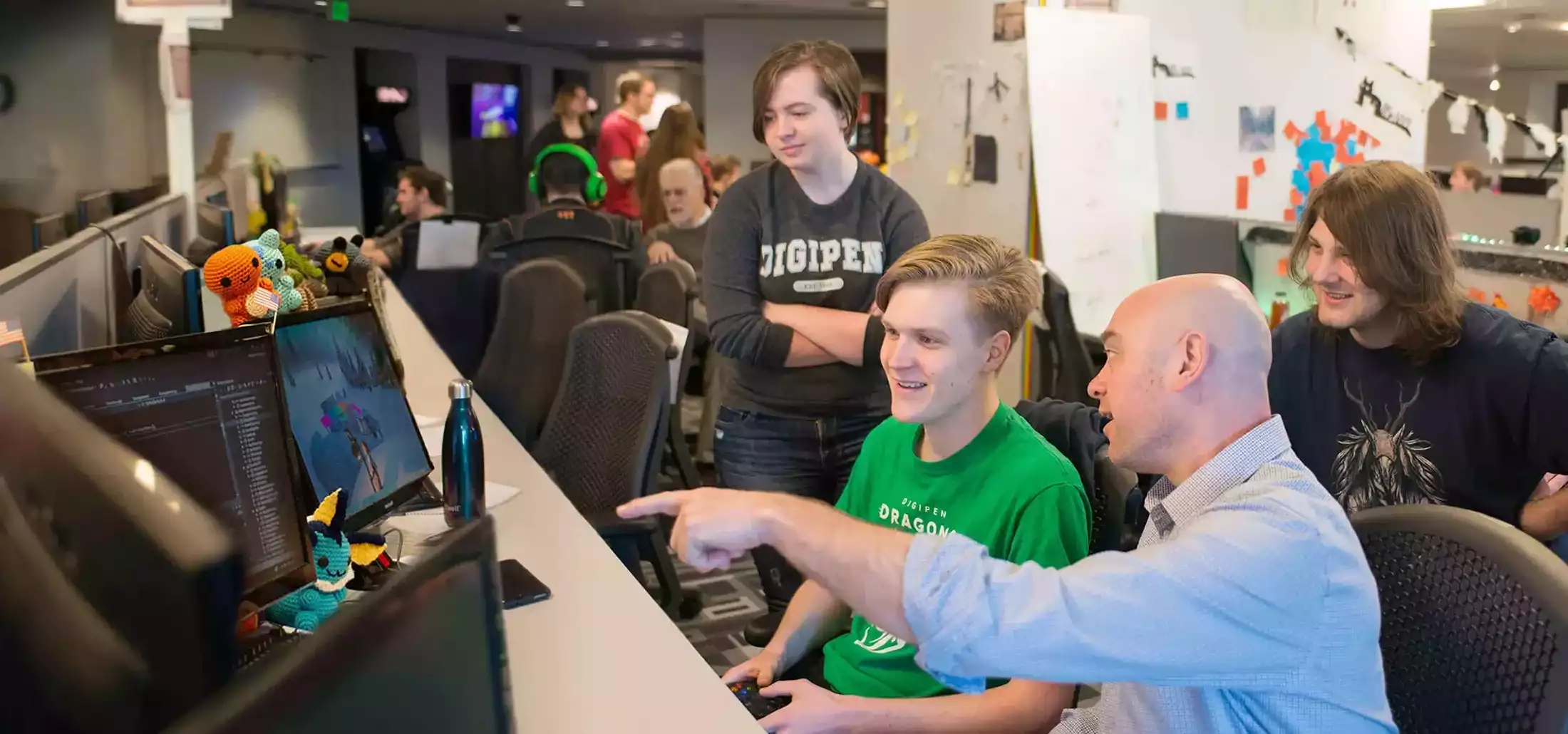
Focus Areas
Gameplay
Design the mechanics of your game’s world. Balance the behind-the-scenes systems, build levels, fine-tune user interfaces, and more.
Tools
Bridge the gap between the creative and the technical. Utilize student-built engines and tools like level editors that make it easier to adjust and perfect every aspect of your game.
Academic Concentrations
Your Degree, Your Way.
Take your education in the direction you’re most interested in. In your junior year, you’ll apply to two of six design tracks that will shape your remaining schedule with courses that dive deeper into the topics that matter to you most.
Game design extends beyond the controller, and our courses task students to analyze and research a variety of game experiences.
- Video Games
- Board Games
- Card Games
- Puzzle Games
- Party and Social Games
- Tabletop Role‑Playing Games
- Sports and Physical Games
Our students are passionate, and our game team interviews bring their development stories to the forefront.
Find Out What Makes Us Different
Chat directly with a student ambassador or tune into an online info session — there’s always a way to learn more about DigiPen.
Curriculum
Instructors with Industry Insight.
From your first day of class to the day of your commencement, our renowned faculty and network of diverse professors have curated your academic progression to transition you into the workforce with ease and confidence.
Featured Courses
Events Featuring Faculty

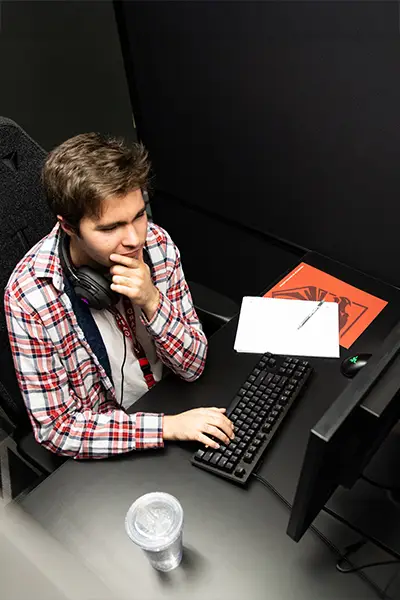
Our online events are in cooldown and will respawn soon.
Online Events
A selection of fundamental courses included within our game design degree program that help answer if you need a degree for video game design.
- DES 100 Introduction to Design Process
- PSY 101 Introduction to Psychology
- CS 165 Programming Foundations
Our instructors come from rich and diverse backgrounds, and these are just some of the companies they’ve made their mark on.
- Nintendo Software Technology
- Xbox Game Studios
- Amazon
- Electronic Arts
- Lucasfilm Games
- Crystal Dynamics
- Activision
- Wizards of the Coast
- Wargaming
- Bungie
